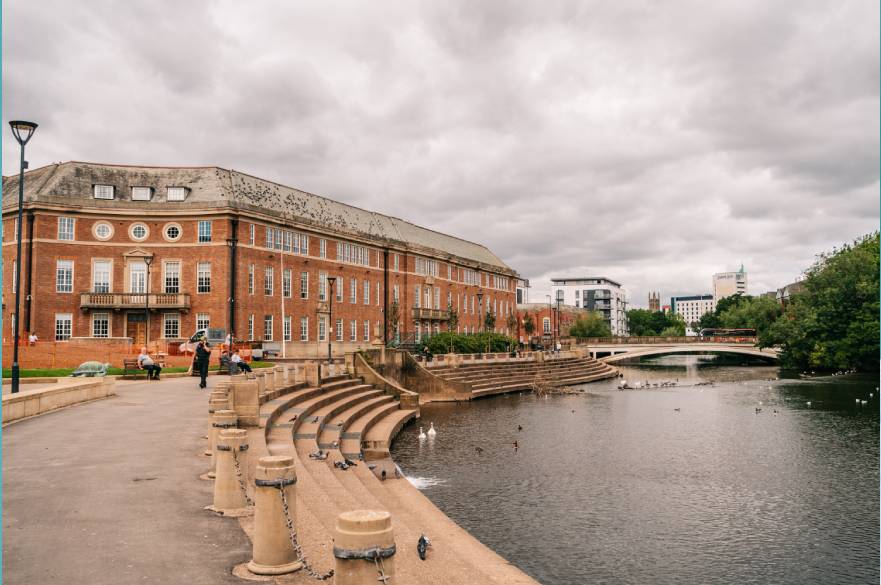The economic factors affecting households up and down the country are also starting to hit local authorities. Rising inflation plus increases in energy, fuel and other costs are creating a ‘perfect storm’ of pressures on Derby City Council’s budget.
This follows two years where we’ve faced the effects of COVID-19, and had to adapt to the needs of our citizens as Derby’s economy begins to recover from the global pandemic. This made it particularly difficult for Derby and other local authorities to plan to deliver services as they normally would, but with careful management, last year we achieved a balanced budget.
Now we face new challenges, which like COVID-19 are beyond our control, in particular the global events that have driven significant inflationary cost increases. The current overspend is forecast to reach £10.8 million, after the first quarter of the financial year. The Council has taken appropriate steps to manage areas where we see the highest demand, and we’ve mitigated a further £3.8 million of potential cost increases, through savings and being more efficient; without this action, the overspend figure would be significantly higher.
It is important to acknowledge that the economic factors affecting Derby City Council are being felt by every other local authority in the country. Due to the measures we’ve taken, our financial position is not as serious as many councils are confronting. The issues affecting local government have been recognised by the Institute for Fiscal Studies, the Local Government Association and others, and we continue to lobby the Government for more central funding.
Councillor Jonathan Smale, Cabinet Member for Finance, Digital and Culture, said:
We’ve already been doing lots to help mitigate the impact of increasing costs, and although we’re in unsettled times, like other Local Authorities across the country, we continue to be here for Derby as the city continues to recover.
COVID-19 changed the way in which services are delivered, the number of people needing our support and intervention, and the way we generate our income. We had to ensure that we continued to support people in Derby who couldn’t, for whatever reason, support themselves. Today’s pressures are different but we’re committed to providing the best service we can for Derby citizens.
Like every household in the country we’re taking a careful look at what we’re spending money on, what we can delay spending money on, and what we can do differently.
Our colleagues are vital to the smooth running of our services. The proposed national pay award is an additional cost we must cover but with pay increases higher in the private sector, we have to remain a good choice of employer. There are some areas, such as social care, which urgently require more staff.
Among the added spending pressures we’re facing are more adults needing funded places in residential homes, and who need care and support to continue living at home. We have fewer children in our care, but the cost of providing places for them in residential care has increased. Costs for our Street Lighting PFI are forecast to rise by £500,000 because of the increasing cost of electricity. Our expected energy bill is already £1 million more than last year, and rising.
Children’s social care is an area where we need to spend a lot of money to ensure children get the help they need. We are proud to be one of only three cities in the country to be awarded Outstanding by Ofsted for our children’s services, and we’re taking measures to reduce budget pressures there. These include recruiting and training people with alternative qualifications to become social workers, so we don’t need to rely on as many agency staff.
Another example of what we’re already doing is more prevention work in social care to avoid intervention at a higher level, which costs more, later on. We’re further developing our Staying Together Team which is working to give teenagers help early on, to prevent them from entering the care system, and recruiting more of our own foster carers to keep children in a family environment.
We’re looking at how we can recover more debt, and reviewing contracts when they come up for renewal to get better value for money. Our new waste contract will save £500,000 from October, and we expect to save over £1 million on Home to School transport contracts.
Proposals for spending will be reviewed to see if it’s essential for this financial year. Where we have staff vacancies, colleagues will be asked to consider what we can no longer do with less staff, and the risks of not recruiting, so we can ensure we fill jobs that are essential.
We will do everything in our control to balance our budget and deliver the best that we can for the city of Derby. The current budget position will be discussed at Cabinet on Wednesday 14 September.
